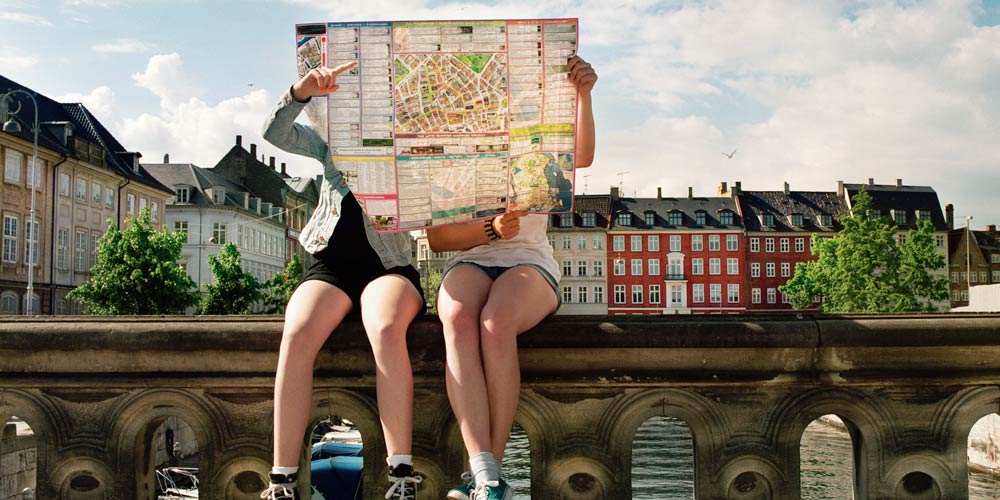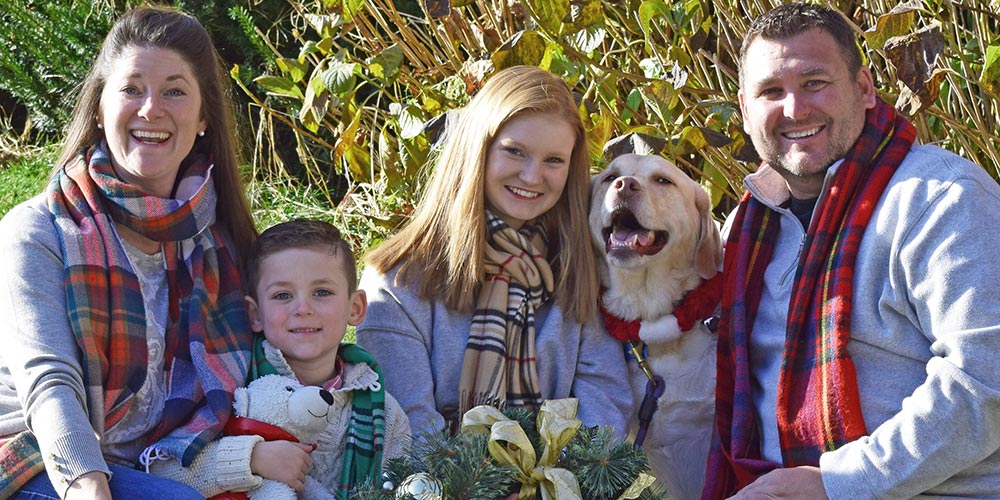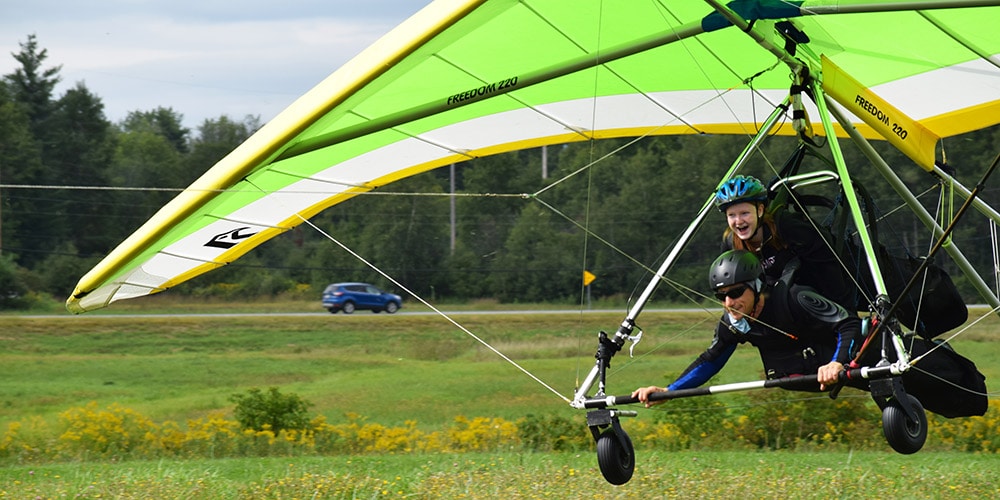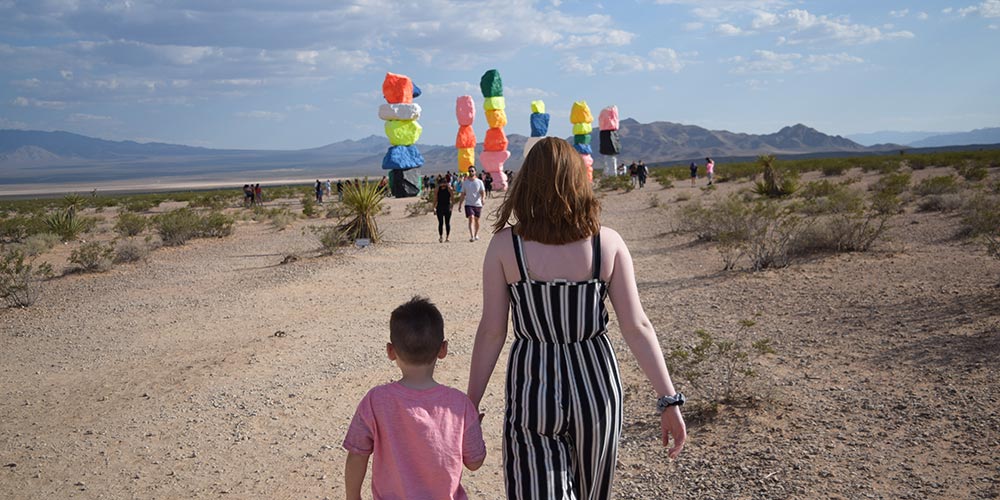
“Is Venezuela in the northern or southern hemisphere?” my 15-year-old daughter asks over her global studies homework.
Instead of answering her, I retrieve the globe that sits on my office bookcase—a precious autographed orb, a guestbook-style memento from our wedding day when friends from all over the world gathered to help us celebrate and jotted their well wishes to us in proximity to their home locations.
She spins the sphere, finding her own answer—and now she knows where Venezuela is. Someday soon, she’ll see it firsthand.
All parents want to give their children the world. For us—first as avid travelers and later as technology-builders witnessing a generational shift—we decided we didn’t have another option.
Our daughter got her first iPad at 7, her first iPhone at 8. Her dad and I thought social technology would make us smarter, part of a more connected global society. It never occurred to us that it would spur a legion of socially exhausted tech addicts whose depression, anxiety and suicide rates are on the rise. According to a new report by Pew, 90 percent of teens now believe that online harassment is a problem, and 60 percent report having experienced some degree of online abuse.
So we made a drastic move. We pulled our daughter from her iPad-required school in favor of worldschooling. We also decided, snatching the extra iPhone from our 4-year old, to put away the tech and see what was left of us beyond the Google calendar-synched borg we’d become.
Worldschooling—basically, homeschooling children through travel—is an alternative education process by which we learn wherever we land. This hands-on program creates deep connection to learning, not to mention, inspires some genuine awe. Imagine if every day were a field trip? That’s how we do it.

Happily, we now know we’re not alone. According to the DOE’s National Center for Education Statistics, the number of American students ages 5–17 being educated outside of the traditional school structure has doubled over the past 15 years, from 850,000 in 1999 to nearly 1.7 million in 2016. (That does not include the millions of students from around the globe who are living the ex-pat life.)
We live by the compass, not the clock. Away from the pressure of competition and other first-world problems, an innate interest in learning has returned to our kids’ lives. And we’re not the only parents who have witnessed this phenomenon.
“When I first took my son (now nearly 14) out of school, I was devastated to see how little interest he had in learning anything. School had essentially taken the joy out of it,” says Australia native Karen King, a worldschooling mother of two, and founder of Worldschooling Central, an online resource center and community of 4,500 traveling families. “Slowly over time, he has redeveloped a love of learning and we are always learning from everything we do on a daily basis.”
The Kings, with nearly 20 countries ticked off their family travel list, followed the path of worldschooling families they met, and much like a well-loved travel guide with personal notes in the margins, now they pass their wisdom to others just getting off the ground.
“When we first started traveling, we learned so much from other families who were already worldschooling. I wanted to create a resource that families could use to help them plan their travels. There is an instant connection, because we have so much in common,” King says. “Some of my best friends are now worldschooling moms. We travel all over the world, and every now and again, our paths cross and we have a ball.”
Worldschooling families get a chance to explore their real interests, and feel part of the tangibility of history everywhere they go.
Instead of reading about the impact of pollution on coral reef formations, our daughter strapped on diving gear and explored one, in the clear, warm water off the coast of Bermuda. Rather than trying to grasp aerodynamics, gravity, drag and lift in theory only, she hopped into a harness and tested them, hang gliding from 2,000 feet through the Connecticut River Valley. She has sailed nearly 1,000 nautical miles, and navigated parts of the Atlantic and Pacific oceans. She has learned to appreciate Shakespeare, seeing the work as it was intended—and much easier to understand—performed in the round, in the Bard’s historic home of Stratford-upon-Avon.

We’ve ridden what remains of Route 66, road-tripping from Los Angeles through the Mojave Desert, stopping for installation art and Americana, touching Joshua trees in 117-degree heat, finding all the inspiration for Disney’s Cars Land, which we had just seen for the first time, too.
Our 4-year old learns languages based on the food he loves. He became a French-Canadian master in Quebec, between the macarons and poutine—both specialties he now can’t live without. “Bon jour,” he shouts, “Un petit poutine sil vous plait.” “Merci beaucoup for my macarons,” he pronounces with a charming smile. And he is never served Italian meatballs without clapping his hands and bellowing, “Buono, buono,” to the delight of his servers.
Our children are becoming responsible for their own learning in a direct, immersed way, discovering new cultures and ideas, and developing their own sense of what’s possible. We bond over new foods, modes of transportation and historic sights. They’re learning to live in real time, without needing the filter of social media to validate them.
And their attachment to each other has grown deeper, forming a unit when new experiences push their limits. I remind them often: “There’s a fine line between fear and excitement.”

The stakes for students have never been higher, according to some parents choosing to worldschool. “For many, it’s a dissatisfaction with daily life,” says King. “[It’s about] wanting to live, instead of just existing, and not wanting to put it off for some time in the future.”
Luckily, for our family, it’s happening now—a spin of the globe and four suitcases away.
By Shelagh Braley
Shelagh Braley is a Boston-based journalist and founder of the award-winning MyLifeList.org. You can follow her family’s travels @mylifeliston Twitter, @mylifelistnewson Instagram, or join the Facebook community at https://www.facebook.com/lifelist/

